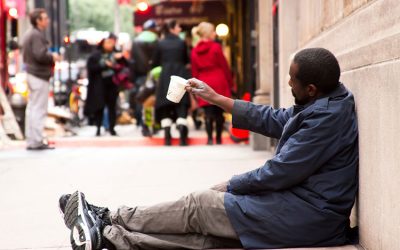Change begins with us

The majority of people in the world are suffering. The greatest affliction in the world is not borne of diseases but of poverty. Consequently, until the issue of poverty is tackled, no other issue in the world can be efficiently and effectively managed.
Has anyone pondered why some poor people risk their lives engaging in dangerous activities for a payment of less than $10? Why do politicians in developing nations arm the youth with rifles to fight and maim their fellow men, for a promised monetary reward?
Why do people, mostly from underdeveloped countries, emigrate to other countries for greener pastures? To gain access to basic amenities, such as potable water, electricity and security, which are lacking in their underdeveloped countries, these migrants work like servants in advanced and developed countries. Why else would a university graduates emigrate abroad to work as messengers or janitors in a bid for a better life? Their dreams of making a difference in life is drastically reduced to the least possible job they could find, however demeaning.
Thousands flee their countries due to wars, political upheavals and bad governance, and many die in the Mediterranean Sea in their bid to cross over for a taste of better living. The quality of life of a newborn child now depends largely on where the baby is born, access to healthcare and adequate nutrition. Poverty engenders all manners of ills, unfairness and dangers throughout the world.
How do we reduce poverty in the world? Bearing in mind that when a person overcomes poverty, he has overcome 70% of his problems. This can make a global difference in the long-term, as change begins with everyone of us.
Most diseases in the world are curable, but due to ignorance and poverty, hundreds of thousands of people in developing countries and the poorest people living in developed countries needlessly die every year. If a person lacks adequate food, he or she can develop ulcers; if he or she lacks potable water, he or she can die of dehydration or typhoid. Clearly, poverty is the world’s greatest pandemic.
The migrants living in developed countries often find it difficult to assist in developing their motherland. How can they, when they work menial jobs and spend the rest of their lives paying home mortgages in their host country? How can they develop their own country when they are trapped in a web better known as modern-day oppression. A 30-year-old man pays his mortgages until he gets to 65 years old and the day he mistakenly defaults in payments, the property is seized and sold to the next victim.
Governmental policies throughout the world need to change, so as to find a lasting, compassionate and inclusive solution to eradicating poverty and the sufferings of the invisibly broken.
Peter Akolisa
COO, Benedict International, Inc.




